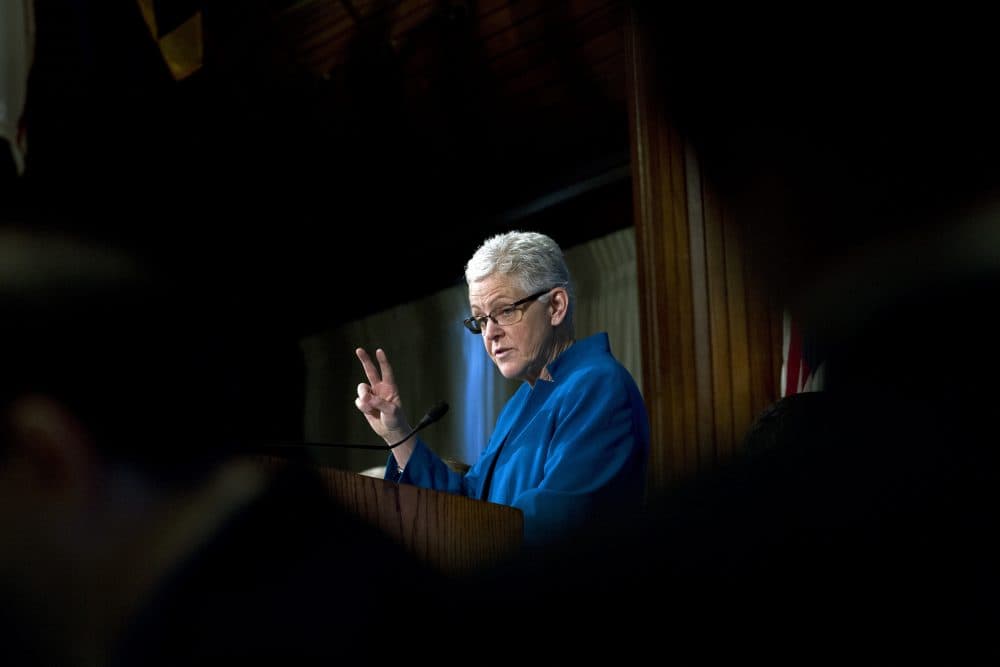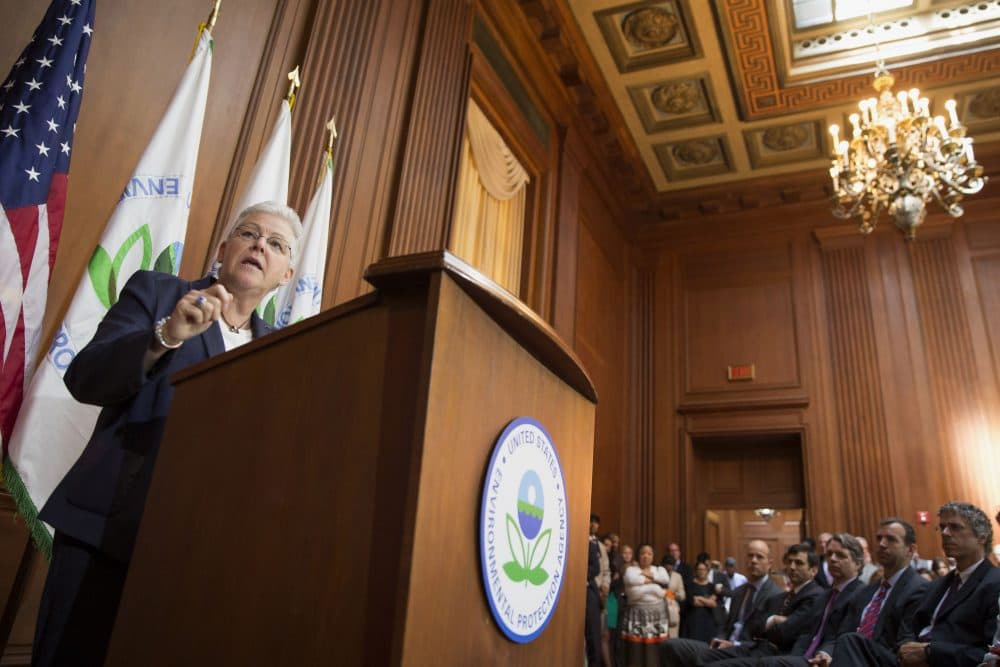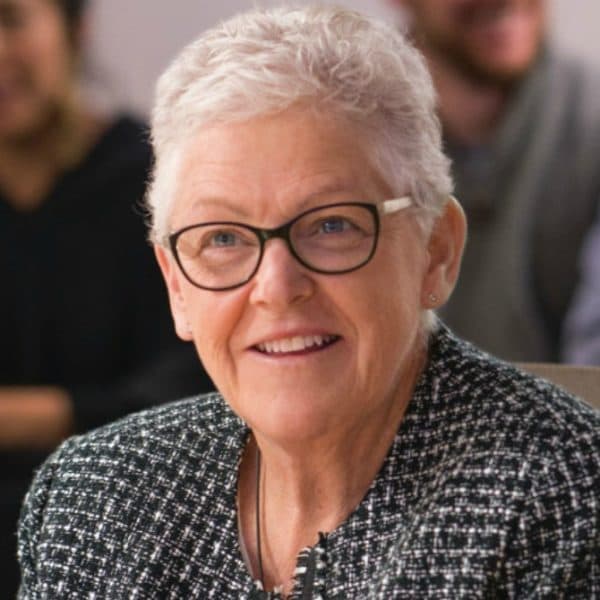Advertisement
Commentary
It's Time To Take Climate Change Personally

My husband Ken and I have been married for 39 years and we have three adult children who make us proud every day. Now, much to our delight, my son and his wife are having a baby boy in August. Our first grandchild.
I recently realized that my future grandson will only be 32 years old in 2050 — the year when science tells us we must be well on our way to a zero-carbon future, if we hope to keep carbon pollution to levels that avoid the most destructive impacts of climate change. The year 2050 had always seemed so far in the distance to me; not anymore.
Now, when I think of climate change, I see the face of my future grandson. He is the face of a changing climate for me. Who is the face of a changing climate for you?
Climate change is not just about protecting polar bears or people living in distant places.
If you picture a polar bear or melting glaciers, it’s time to rethink. If you picture someone living on a tropical island rather than someone in your family or community, it’s time to rethink. If you have no face that comes to mind, then it’s time to think and rethink.
Climate change is not just about protecting polar bears or people living in distant places. It’s not even about the “health” of the planet. Climate change is all about protecting our health and our children’s future.
In the U.S. we talk about climate change when droughts, forest fires or more intense hurricanes hit, but these visible threats are only a small part of the story. Climate change quietly and continuously threatens the health and well-being of people all across the U.S. Warming temperatures increase air pollution, threatening kids who suffer from asthma, with more frequent and intense asthma attacks and premature death. As the climate shifts, the range of disease vectors, like mosquitoes and ticks can expand, increasing exposure to illnesses like Lyme disease and Zika.

A new report on health and climate released by the World Health Organization (WHO) makes the public health challenges of climate change clear. Climate change will exacerbate air pollution, threaten safe drinking water, and create additional food insecurity. The WHO estimates that between 2030 and 2050, climate change is expected to cause approximately 250,000 additional deaths per year from malnutrition, malaria, diarrhea and heat stress — with health costs totaling between $2 billion to $4 billion per year.
It’s time for all of us to take climate change personally. To stand up, speak up and step up.
As the science has become clearer, public support for action to address climate change is building. Today, clean energy jobs and investments are on the rise, innovation is happening, and new clean energy and energy efficiency technologies are being developed and deployed.
Policies, programs and actions are underway in states, cities and businesses across the country, significantly reducing the carbon pollution. The Regional Greenhouse Gas Initiative (RGGI), that has successfully reduced carbon pollution from the power sector in New England and Mid-Atlantic states, is adjusting its power sector cap and trade program to make it more stringent and is considering another partnership focused on transportation.
... environmental progress in this country has always started in local communities
While these efforts are no substitute for strong federal leadership, they are ensuring continued progress. After working for nearly 40 years at all levels of government, I know that environmental progress in this country has always started in local communities where you see the faces of neighbors and friends suffering from environmental impacts, where public servants cannot hide in statehouses or on Capitol Hill, and where action must be taken regardless of partisan politics.
We’ve made tremendous progress, in spite of efforts by the fossil fuel industry — including leaders in the Trump administration — to deny the science, create barriers to clean energy technology development and deployment, challenge policies, rules and programs that have reduced carbon pollution and grow the clean energy economy in the U.S. and beyond.
But singing the “Beltway Blues” isn’t going to help. Let’s start celebrating the fact that we have climate solutions today. And if we work together, we can drive investments in the kind of broad, systemic change we need to achieve a zero-carbon future.
We will make huge leaps forward in the U.S. and across the world if we make smart investments in public health protections that have the longer-term benefit of driving down carbon pollution.
C-CHANGE, the new Center for Climate, Health and the Global Environment at the Harvard School of Public Health, will help champion this strategy. At C-CHANGE, world-class science will show how efforts to reduce air pollution, keep our drinking water clean and plentiful, our land safe, our buildings free of indoor air pollutants and toxic chemicals, our communities livable and green, our diets nutritious in the face of growing populations and changing resources, can pave the way for a low carbon future that is healthier, more just and sustainable.
We will communicate science in ways that people can understand and work with experts to make science relevant and actionable. We will convene decision-makers to arm them with information and support them in efforts to make the world healthier today and more sustainable tomorrow.
As President Obama stated in 2015, “We are the first generation to feel the impacts of climate change and the last to be able to do something about it.” Yet too many of us still view climate change as a distant threat, not the most significant threat to our communities, our families and our children.
When I think climate change, I see the face of my future grandson. Who is your face of a changing climate?
